Go Lean Commentary
 Why is leadership so important?
Why is leadership so important?
Think of society as a vessel or a vehicle; only one person “steers the ship” or drives the bus. The direction and speed of the vessel-vehicle is determined by the leadership; so too its safety. This is the actuality of the “Ship of State”. Yes, we put a lot of responsibilities and privileges in the hands of our societal leaders, so we had better choose well. We had better select those with Good Leadership skills, practices and intentions as our lives may depend on it.
In fact, this is the origins of civilization and society. City-States built walls to protect their occupants; kings were the warriors or commanders-in-chief protecting their people. Security was the only consideration for Good Leadership at that time; economic stewardship and efficient governance are all more-modern evolutions.
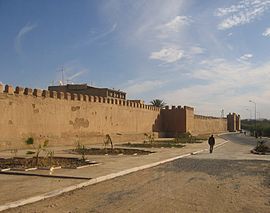

As related in a previous blog-commentary, the emergence of the implied Social Contract codified the expectations of all parties involved in society. Despite the forms of government or versions of constitutions, the principles are all similar in the expectation of citizens versus their governments. That Social Contract is summarized as follows:
Citizens surrender some of their freedoms and submit to the authority of the State in exchange for protection of remaining natural and legal rights.
 This is a matter of public safety and security. Good Leadership ensures that the mutual deliveries of the Social Contract are fulfilled. Good Leadership, therefore, should mitigate crime in the jurisdictions of their homeland. (See the feature article from the Caribbean member-state of the Turks and Caicos Islands in the Appendix below). While citizens may love their homeland, there must be the assurance that the homeland loves (and protects) their citizens back.
This is a matter of public safety and security. Good Leadership ensures that the mutual deliveries of the Social Contract are fulfilled. Good Leadership, therefore, should mitigate crime in the jurisdictions of their homeland. (See the feature article from the Caribbean member-state of the Turks and Caicos Islands in the Appendix below). While citizens may love their homeland, there must be the assurance that the homeland loves (and protects) their citizens back.
“Love their citizens back …”
This has long been a problem in many countries. There is blatant discrimination and unequal justice in many communities that have yet to reconcile their dysfunctional racial realities – think the United States of America. The primary responsibility for delivering public safety – for mitigating crime – is the local police, but for many American communities, the police do not “serve and protect”; they are the threat to peace and security. This commentary have long reported on “Cop on Black” atrocities in America; but this is also a problem in other countries like Canada, UK, France and the Netherlands.
Do you see that pattern?
 Those countries are the exact destinations for many of the Caribbean Diaspora. The Black-and-Brown of the Caribbean had fled their homeland in search of refuge but instead have found a more threatening climate in their new homes. See the VIDEO in the Appendix below where the Black populations – and those that love them – are protesting. If only, these ones were able to prosper where planted in their ancestral homelands and did not have to leave in the first place.
Those countries are the exact destinations for many of the Caribbean Diaspora. The Black-and-Brown of the Caribbean had fled their homeland in search of refuge but instead have found a more threatening climate in their new homes. See the VIDEO in the Appendix below where the Black populations – and those that love them – are protesting. If only, these ones were able to prosper where planted in their ancestral homelands and did not have to leave in the first place.
This is the quest of the new Caribbean governance as presented in the 2013 book Go Lean…Caribbean; the book posits that an embrace of Good Leadership can allow for these communities to reform and transform, allowing more success in the mitigation and remediation of crime.
This is the completion of the Teaching Series on Good Leadership from the movement behind the Go Lean book; this is entry 6 of 6 for the month of May 2020. This submission asserts that Good Leadership in the administration of a Caribbean regional security force and police force can have immediate effect on public safety and justice institutions – we can mitigate crime. The full catalog for this month’s series is listed as follows:
- Good Leadership – Inaction could be deadly
- Good Leadership – Caring builds trust; trust builds caring
- Good Leadership – Agile: Next Generation of leadership and project delivery
- Good Leadership – Hypocrisy cancels out Law-and-Order
- Good Leadership – Example – “Leader of the Free World”
- Good Leadership – Example – For Mitigating Crime
The 30 member-states of the Caribbean need to reform and transform the Homeland Security deliveries in the region to better fulfill the Social Contract. We do not want our good citizens forced to leave to find refuge abroad. That refuge is elusive there in those foreign abodes, so the “best bet” is to do the work here to elevate society. What exactly can be done to mitigate crime in the Caribbean region?
Plenty!
There are many strategies, tactics and implementations. In fact, we have exhausted this topic … in the Go Lean book and in previous blog-commentaries. See this sample here:
| https://goleancaribbean.com/blog/?p=14424 | Title: Repairing the Breach: Crime – Need, Greed, Justice & Honor “Black men and boys” in the US amount to 6.5 percent of the total US population but 40.2 percent of the prison population. Surely, there are some special issues associated with this special interest group, but “Yes, we can” reduce crime among this special sub-population. While this is an American drama, 29 of the 30 Caribbean member-states feature a majority Black-and-Brown demographic, so there is relevance for us. |
| https://goleancaribbean.com/blog/?p=13476 | Title: Future Focused – Policing the Police People flee their Caribbean homelands for many different reasons, including deficiencies in security measures. There is the need to Police the Police. This will mean giving help and support to policing authorities, but also accountability too. There must be “good” checks-and-balances. |
| https://goleancaribbean.com/blog/?p=7485 | Title: A Lesson in the History of Interpersonal Violence – Street Crimes To elevate Caribbean society there must be a focus on the region’s security and governing engines to provide justice assurances. Street violence stems from 3 considerations: 1. Need, 2. Greed, and 3. Justice. The Go Lean roadmap addresses jobs, to lower the “need” factor. Plus, the emergence of new economic drivers will bring “bad actors” who would seek to exploit the opportunities for greed, so there is an intense focus on White Collar crime mitigations. Lastly, the last factor “justice” addresses street riots, civil unrest and other outbursts against perceived injustices. So the “Justice Institutions” – in the new Caribbean – must be optimized to ensure accountability, fairness, equality, law-and-order for all. |
| https://goleancaribbean.com/blog/?p=7179 | Title: Crime Specialist Urging: ‘Change Leaders in Crime Fight’ Remediating and mitigating crime is both an “Art” and a “Science” so we have to rely on professionals and Subject Matter Experts – the Police – to do this job efficiently and effectively. These ones need to learn and abide by best-practices. The chain-of-command is essential for law enforcement, so change the head – leaders – and the body will follow. |
| https://goleancaribbean.com/blog/?p=6693 | Title: Ten Puerto Rico Police Accused of Criminal Network An exposed case of corruption by police officials in PR have demonstrated that this community is not so elevated in their societal engines, an expectation due to their US territorial status. American territories (PR & USVI) need this Go Lean roadmap just like the rest of the Caribbean region. |
| https://goleancaribbean.com/blog/?p=5307 | Title: 8th Violent Crime Warning to Bahamas Tourists The stewards of the new Caribbean economic eco-systems, need to pay more than the usual attention to Travel Alerts about crime in the region. We must be On Guard to mitigate and remediate threats with anti-crime initiatives, even “policing the Police”. |
| https://goleancaribbean.com/blog/?p=392 | Title: Jamaica to receive World Bank funds to help in crime fight Crime has proceeded to cast such a “dark cloud” on Jamaica that the country is near the assessment of a “Failed-State”. The World Bank funded grants to help Jamaica in 3 ways: 1. Improved services, 2. Basic infrastructure and 3. Targeted crime & violence interventions. |
The focus is for Homeland Security, not just for mitigating crime. All threats (foreign and domestic) against Caribbean society must be addressed. This includes elevating the effectiveness and efficiency of First Responders for all of these Bad Actors:
- Natural Disasters (Hurricanes, Earthquakes, Volcanoes, Flooding, etc.)
- Industrial Accidents
- Pandemics
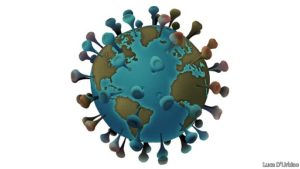 That last one – pandemics – is all the rage right now. There are no Ands, Ifs or Buts, with the current Coronavirus-COVID-19 crisis, Good Leadership would do a better job of managing such a crisis. We also have to contend with policing the Police.
That last one – pandemics – is all the rage right now. There are no Ands, Ifs or Buts, with the current Coronavirus-COVID-19 crisis, Good Leadership would do a better job of managing such a crisis. We also have to contend with policing the Police.
Also notice too that the Go Lean roadmap calls for the mitigating the eventual ‘Abuse of Power’. Since “power corrupts and absolute power corrupts absolutely”, there is the need to monitor, mitigate and manage the risks of bad behavior among law enforcement, security personnel and elected leaders – this is the cause for complaint in the US right now (Appendix below).
This is an important consideration for us in the Caribbean considering our prior history with the Pirates of the Caribbean. That was an example of a prevalence of a lawless society and a blatant abuse of power. This was detailed in the previous entry of this series – 4 of 6 – for May 2020 – Good Leadership #4: Hypocrisy cancels out Law-and-Order – it stressed how important optimizing justice institutions to ensure law-and-order for all. See this excerpt here:
For Good Leadership, those at the top must avoid hypocrisy, or hypocritical standards.
This is right, no one should be “above the law”; when there is the manifestation of Bad Actors that operate “above the law” or “without law”, then chaos ensues in society. This is an issue of justice, fairness, mercy and law-and-order. This is the historicity of our regional homeland; remember the Pirates of the Caribbean.
No doubt, the Caribbean region needs Good Leadership to mitigate crime in the homeland. We must appoint leaders to “serve and protect” our residents and trading partners – think tourists and Direct Foreign Investors. We need to do better at this. We need to dissuade our own people from fleeing to find refuge and we need to invite others to come from afar to enjoy our hospitality. This will make our homeland a better place to live, work and play. We hereby urge all Caribbean stakeholders to lean-in to this Go Lean roadmap to forge and benefit from Good Leadership. 🙂
About the Book
The book Go Lean…Caribbean serves as a roadmap for the introduction and implementation of the technocratic Caribbean Union Trade Federation (CU), for the elevation of Caribbean society – for all member-states. This CU/Go Lean roadmap has these 3 prime directives:
- Optimization of the economic engines in order to grow the regional economy to $800 Billion & create 2.2 million new jobs.
- Establishment of a security apparatus to ensure public safety and protect the resultant economic engines.
- Improve Caribbean governance to support these engines, including a separation-of-powers between the member-states and CU federal agencies.
The Go Lean book provides 370-pages of turn-by-turn instructions on “how” to adopt new community ethos, plus the strategies, tactics, implementations and advocacies to execute so as to reboot, reform and transform the societal engines of Caribbean society.
Download the free e-Book of Go Lean … Caribbean – now!
Who We Are
The movement behind the Go Lean book – a non-partisan, apolitical, religiously-neutral Community Development Foundation chartered for the purpose of empowering and re-booting economic engines – stresses that reforming and transforming the Caribbean societal engines must be a regional pursuit. This was an early motivation for the roadmap, as pronounced in the opening Declaration of Interdependence (Pages 11 – 13):
x. Whereas we are surrounded and allied to nations of larger proportions in land mass, populations, and treasuries, elements in their societies may have ill-intent in their pursuits, at the expense of the safety and security of our citizens. We must therefore appoint “new guards” to ensure our public safety and threats against our society, both domestic and foreign. The Federation must employ the latest advances and best practices of criminology and penology to assuage continuous threats against public safety. ….
xi. Whereas all men are entitled to the benefits of good governance in a free society, “new guards” must be enacted to dissuade the emergence of incompetence, corruption, nepotism and cronyism at the peril of the people’s best interest. The Federation must guarantee the executions of a social contract between government and the governed.
xvi. Whereas security of our homeland is inextricably linked to prosperity of the homeland, the economic and security interest of the region needs to be aligned under the same governance. Since economic crimes … can imperil the functioning of the wheels of commerce for all the citizenry, the accedence of this Federation must equip the security apparatus with the tools and techniques for predictive and proactive interdictions.
xxiv. Whereas a free market economy can be induced and spurred for continuous progress, the Federation must install the controls to better manage aspects of the economy: jobs, inflation, savings rate, investments and other economic principles. Thereby attracting direct foreign investment because of the stability and vibrancy of our economy.
Sign the petition to lean-in for this roadmap for the Caribbean Union Trade Federation.
———————
Appendix – Title: Governor’s statement on addressing crime in Turks and Caicos
Sub-title: Governor’s statement on addressing crime in Turks & Caicos Islands delivered during 10 September joint press conference.
 Let me start, as the Governor, by welcoming you. For those listening to us on the radio we are in the Premier’s Office and I’m joined by the Premier and the recently appointed Commissioner of Police. We also have with us the Deputy Governor, Deputy Premier, and the Executive Leadership team of the Police Force.
Let me start, as the Governor, by welcoming you. For those listening to us on the radio we are in the Premier’s Office and I’m joined by the Premier and the recently appointed Commissioner of Police. We also have with us the Deputy Governor, Deputy Premier, and the Executive Leadership team of the Police Force.
We are here to describe and take questions about the recent spike in the murder rate on the islands.
Let me first start with the most important group we want to acknowledge; the victims. Their lives taken, their futures stolen. Their families, their friends hurt beyond imagination. Those who were their parents, their partners, their sweethearts, their brothers, their sisters, their children. Those who were once at their school or who shared a work place or who just thoroughly enjoyed their company or their humour. Those that loved them intensely in life and those who had no idea how much they thought of them until they were gone.
I’m very aware that a life taken away – suddenly, unexpectedly and violently – is a blow very hard to deal with. There’s an immediate overwhelming heart-stopping shock to be replaced over time by a feeling of sadness that remains and returns when least expected. No opportunity for a final goodbye, no opportunity to perhaps put something right or say something that needed to be said.
The cold statistic of 10 murders doesn’t start to explain the impact this has on those very close to the person who has lost their life, but also on a community. And on an island, which is one extended community, a violent attack on one member feels like an attack on us all. I speak therefore for all of us when I say we want to bring those who did this, to your loved ones, and to our community, to justice.
Beyond gaining justice for those we have lost, you quite rightly want to know what we are going to do about this to prevent further loss, and that’s the purpose of this press conference.
I promised when I was sworn in that I was going to be clear, and in being ‘clear’ I was going to be ‘straight’. So what we are not going to do is down-play the seriousness nor are we going to offer you the illusion of a quick fix.
Anyone suggesting there is one, hasn’t looked at a whole range of comparative scenarios from around the region or from around the world as to how serious crime has to be tackled across government and society.
I said when appointing the new local Deputy Commissioner, last month, that when we come to talking about ‘the police and crime’ we have reached the end of a conversation rather than having a much needed conversation about its causes. It’s going to take time, and it’s going to take far more than just ‘the police’ to develop a society that’s at ease with itself and where serious crime is a genuine aberration.
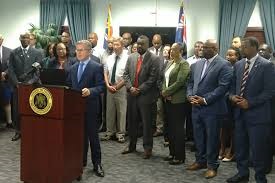 The important march on Sunday, led by our church leaders, supported by the Honourable Premier and Honourable Leader of the Opposition, which placed an emphasis on society and community, was an excellent example that these leaders, religious and secular, understand that.
The important march on Sunday, led by our church leaders, supported by the Honourable Premier and Honourable Leader of the Opposition, which placed an emphasis on society and community, was an excellent example that these leaders, religious and secular, understand that.
In being clear and in being straight we are also not going to engage in hyperbole or stoke emotions. What our collective intention is, in a leadership role, is to inform you with facts. What’s the issue? What’s being done?
I’m first going to say something about the leadership, not only of this issue, but our general approach to leading the country at times such as this, and then something about what the facts are telling us. The Commissioner is then going to talk about the immediate policing response that he and his Executive Team have led. Most importantly the Premier is going to talk to the wider societal issues and her government´s continued support to the police as we move forward. We will then take questions.
Let’s start at the top. The most important thing we, as a national leadership team can do, at this time, is lead. The symbolism of the three of us presenting together should not be lost on you, nor on the criminals. We have been working on this, in the background, as part of the National Security Strategy since I arrived and we had expected to explain this change of approach, when we rolled that out. But today we have the opportunity to give you a glimpse of how we are going to lead national and internal security going forward.
The world is now too complex for there to be institutional stovepipes and we intend to lead in a joined up way in the expectation that others will match our behaviours and work across institutional boundaries to deliver results.
Beyond that simple thought: those on the front line delivering operational impact; those paying for it; those who are held responsible to the electorate; those who can propose policy and deliver legislation, and; those who hold the Constitutional lead, including in extremis the power to call on emergency powers, or on international support, have to be working in sympathy.
Being blunt, if we can’t get it together at the top, what hope below. Some have called this a crisis (given what I’ve seen in my life this isn’t, I assure you, a crisis). But if it is, it’s also an opportunity to make this three way relationship meaningful. The three of us have seized that opportunity. It’s now the new normal. Key point: every resource and power available to us can, as we wish, now be focused rapidly when and where we want it to be because we are joined up.
So what’s the problem we are seeking to solve? I’ve already described 10 murders. That’s 10 too many; justice needs to be done and will be done. Beyond that, what else are the facts telling us.
The first is, is that the emotions the public are feeling, are grounded in truth. I’m going to give you the facts as to why we should as a society be concerned and focused. What we should not be, as a society is panicked or afraid. In this regard what is not helpful are misleading accounts on social media of phantom shootings and non-existent attacks that distract police from dealing with issues where there is genuinely life at risk.
If you are spreading a story on social media about an attack that’s supposedly occurring but that you’ve not witnessed, please pause and think. Are you helping make society better and safer. Gossip and rumour are toxic at the best of times but when they promote unnecessary fear, when what we need is strength and resilience, they become part of the problem. Please be part of the solution. Please deal in known facts.
I want to first of all explain one fact that I know you are less interested in but one that is none-the-less accurate and important. Year-on-year the overall (and I stress the word here overall) crime statistics have been falling. Over five years overall crime is down 30%. I’ve been with our police more since my arrival than I have been with my own team. We have an increasingly good force. The statistics tell us that away from the most serious crime where there are really deep non-policing factors at play, our police have been getting better at doing their job and part of this is down to investments made in them.
But I also know that, at this moment, this is not the figure that you are interested in. What you are interested in are the levels of serious crime. On this issue the figures tell us an interesting story. Over the last five years they initially rose to peak in 2016/17 at 426 serious crimes that year to then fall back, in line with other falls in crime rate, to 314 last year.
So what’s happened this year. If we look at the April to August figures and compare them to last year, there is a sharp increase in serious crime. If you break this down further it’s not ‘murder’ (the very visible and appalling tip of the ice-burg) that shows a significant increase but instead that which is less easy for the press or public to see: ‘firearms offences’.
Murder, itself, shows a relatively small rise but the more general firearms offences have increased from 26 last year to 62 this year. That’s very significant.
Some of these firearms offences are linked to robbery, it’s those that we know are causing widespread public concern, but a significant number are indeed ‘retaliation’, not so much linked to gangs or turf, but to perceived arguments and disrespect amongst groups. It’s an uncomfortable truth, but it’s a truth the three of us need to share with you, that much of this problem is not imported, it’s home grown. Its not ‘the other’, it’s ‘us’.
It’s also worth saying that we believe we are dealing with a very small number of criminals – who are increasingly becoming known to us – and when arrested and charged – because there is evidence that can be put before the court – will reduce, possibly seriously reduce, the problem we have right now.
Having explained the local picture I now want to say something about how this impacts on our tourist industry as it’s not just local but international commentators that are following this. The way murder rates are calculated globally is by death per 100,000. In a country as small as ours just one murder starts to impact on this ratio. Just one bad individual can start to change the way our Islands are presented globally.
The facts are that in 5 years we have lost only two tourists to murder. One at a resort, one in a private residence. That is two too many. Everything I said at the start of this conference about the devastating shock to family and friends I want to reemphasize, again. The shock is exacerbated because these were our guests in our country, away from their family and their friends and they came because they knew they were coming to a world class, amazingly relaxed and tranquil destination, that have people returning year-on-year, who in many cases see it as their second spiritual home, because they love these islands and her people. It is, and it remains, one of the most perfect destinations in the world.
The facts regarding tourist safety are we have 1.8 million tourists arriving with us by air or sea every year. A tourist is statistically extraordinarily safe; almost certainly safer than in their home country. It’s important, as we face down the problem we have, we don’t unintentionally signal that this island is anything other than amazingly safe for our visitors and what a superb job our tourist industry do in ensuring their guests have an extraordinary time with them and with us.
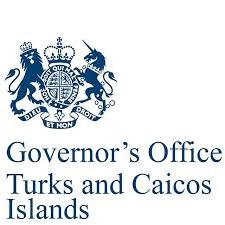 Finally TCI: we are bigger, we are better and we are stronger than allowing a small number of bad men, to bring fear into our amazing country. The stoicism we show in times of natural disaster is admirable; let’s show it now. As you hear the Commissioner and Premier speak let’s all of us assume ‘agency’, not just in observing the problem, but being a part of the wider societal solution.
Finally TCI: we are bigger, we are better and we are stronger than allowing a small number of bad men, to bring fear into our amazing country. The stoicism we show in times of natural disaster is admirable; let’s show it now. As you hear the Commissioner and Premier speak let’s all of us assume ‘agency’, not just in observing the problem, but being a part of the wider societal solution.
As I hand over to our Commissioner, I end where I began, we are determined to bring those who are working so hard to undermine our society to justice. Our thoughts – indeed our motivation – come from us understanding the deep hurt that these men did to the victims and those close to their victims – and if this ever was to your mind a crisis, it’s now become a realised opportunity. You have an unshakable national team that intends to impose itself on this and any future national security problem. This is therefore an important moment for the country in more than one sense. Commissioner, over to you.
Published 18 September 2019
Source: Posted September 18, 2019; retrieved May 31, 2020 from: https://www.gov.uk/government/speeches/governors-statement-on-addressing-crime-in-turks-and-caicos
———————
Appendix VIDEO – Protests over George Floyd’s death spread across the United States … and the World – (Redfish)
– https://youtu.be/QK6zJo3o8l8
Fábio Duarte Persiani
Posted May 31, 2020 –
- Category: News & Politics
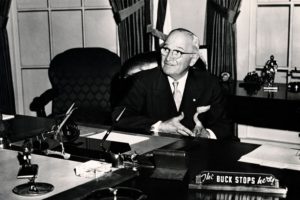 In addition to the country presenting itself as a model democracy, the Chief Government official in the US, the President of the United States (POTUS) is considered the “Leader of the Free World” – this has been the association ever since the start of the Cold War (early 1950’s)..
In addition to the country presenting itself as a model democracy, the Chief Government official in the US, the President of the United States (POTUS) is considered the “Leader of the Free World” – this has been the association ever since the start of the Cold War (early 1950’s)..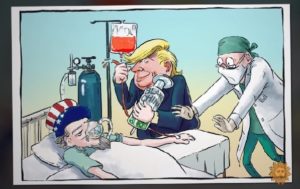
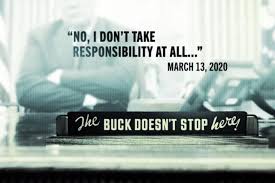
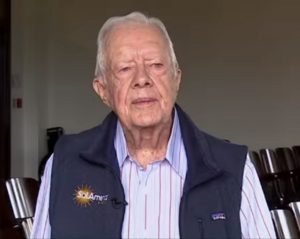 Former President Carter’s vision for clean, renewable energy proved to be far ahead of his time.
Former President Carter’s vision for clean, renewable energy proved to be far ahead of his time. Carter’s continued activism in support of renewables showcases the importance of local and individual efforts to reduce humanity’s reliance on fossil fuels, even in the
Carter’s continued activism in support of renewables showcases the importance of local and individual efforts to reduce humanity’s reliance on fossil fuels, even in the 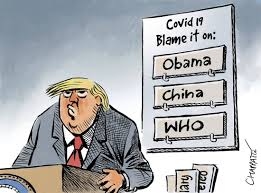
 That is just the standard. Global Standard, that is! It assumes that moral code must be equally applied to all stakeholders. Any violation of this standard is considered hypocrisy, of which the end result is a total disrespect for all standards, rules and/or law-and-order.
That is just the standard. Global Standard, that is! It assumes that moral code must be equally applied to all stakeholders. Any violation of this standard is considered hypocrisy, of which the end result is a total disrespect for all standards, rules and/or law-and-order. This is familiar in the European rationalization. In my school days, there was a system of “Merits and Demerits”:
This is familiar in the European rationalization. In my school days, there was a system of “Merits and Demerits”: The days of the Pirates of the Caribbean provides a glimpse for today’s pandemic crisis; the blatant hypocrisy of the times made societal progress difficult. There are no Ands, Ifs or Buts; today, we need Good Leadership – among our political, corporate, religious and civic stakeholders – to survive and thrive as a society. We need to heed, adhere and comply with Good Leadership; we do not need blatant examples of hypocrisy cancelling out the Law-and-Order principles. We needed this hypocrisy-free climate before this COVID-19 pandemic; we need it now in the throes of this crisis – think quarantines, stay-at-home orders, wear masks orders, and isolation orders – and we will need it afterwards.
The days of the Pirates of the Caribbean provides a glimpse for today’s pandemic crisis; the blatant hypocrisy of the times made societal progress difficult. There are no Ands, Ifs or Buts; today, we need Good Leadership – among our political, corporate, religious and civic stakeholders – to survive and thrive as a society. We need to heed, adhere and comply with Good Leadership; we do not need blatant examples of hypocrisy cancelling out the Law-and-Order principles. We needed this hypocrisy-free climate before this COVID-19 pandemic; we need it now in the throes of this crisis – think quarantines, stay-at-home orders, wear masks orders, and isolation orders – and we will need it afterwards. Characters: Captain Flint, Long John Silver, William “Blackbeard” Teach, Anne Bonny, Governor Woodes Rogers,
Characters: Captain Flint, Long John Silver, William “Blackbeard” Teach, Anne Bonny, Governor Woodes Rogers, 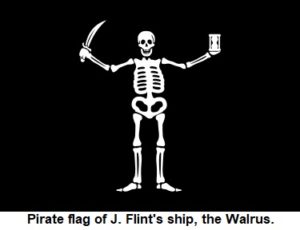 The distinction between a privateer and a pirate has always been vague beyond the licensing Letters of Marque. Without the letters, the parties were considered pirates; of which many frequented the Caribbean region. This industry employed many unemployed seafarers as a way to make ends meet, but became increasingly damaging to the region’s economic and commercial prospects.
The distinction between a privateer and a pirate has always been vague beyond the licensing Letters of Marque. Without the letters, the parties were considered pirates; of which many frequented the Caribbean region. This industry employed many unemployed seafarers as a way to make ends meet, but became increasingly damaging to the region’s economic and commercial prospects.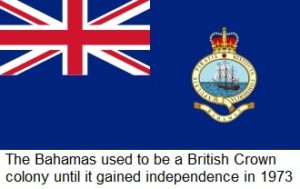 Appendix B – Bahama Islands History; Arrival of the English
Appendix B – Bahama Islands History; Arrival of the English
 Good Project Management = Good Leadership.
Good Project Management = Good Leadership. That is right; the typewriter was only used by secretaries, journalists and/or authors; (think Murder She Wrote
That is right; the typewriter was only used by secretaries, journalists and/or authors; (think Murder She Wrote  The Scaled Agile Framework (SAFe) is a set of organization and workflow patterns intended to guide enterprises in
The Scaled Agile Framework (SAFe) is a set of organization and workflow patterns intended to guide enterprises in  The primary reference for the scaled agile framework was originally the development of a big picture view of how work flowed from
The primary reference for the scaled agile framework was originally the development of a big picture view of how work flowed from  “It is good to be lean”.
“It is good to be lean”.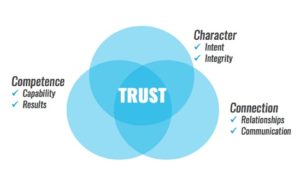 Of course, every sane person desires to be around great friends, great family and maybe even work for a great company. In fact, then Presidential Candidate Donald Trump got support in the United States in 2015/2016 with the promise of “Making America Great Again”.
Of course, every sane person desires to be around great friends, great family and maybe even work for a great company. In fact, then Presidential Candidate Donald Trump got support in the United States in 2015/2016 with the promise of “Making America Great Again”. (Source:
(Source: 


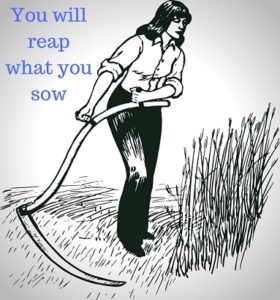 He who does nothing, makes no mistakes. – Old Adage
He who does nothing, makes no mistakes. – Old Adage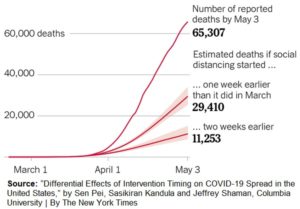 By the final days of February, many public health experts were
By the final days of February, many public health experts were 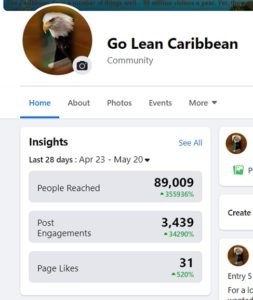
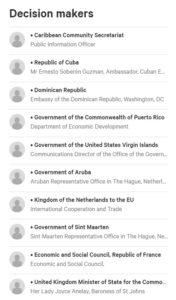
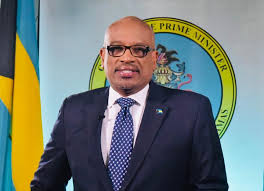





 Their motive, in offering opportunities for your students to matriculate in their universities have ulterior motives:
Their motive, in offering opportunities for your students to matriculate in their universities have ulterior motives:
 WASHINGTON — At the direction of the White House, the Department of Homeland Security has sent recommendations for further restricting legal immigration during the COVID-19 pandemic, according to one former and two current administration officials.
WASHINGTON — At the direction of the White House, the Department of Homeland Security has sent recommendations for further restricting legal immigration during the COVID-19 pandemic, according to one former and two current administration officials.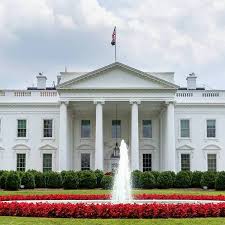 Representatives of the White House and DHS did not respond to requests for comment.
Representatives of the White House and DHS did not respond to requests for comment.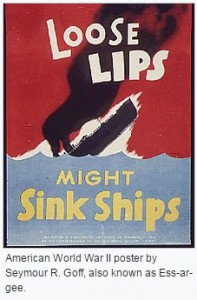 Inappropriate talk can undermine societal engines … and economic engines.
Inappropriate talk can undermine societal engines … and economic engines.